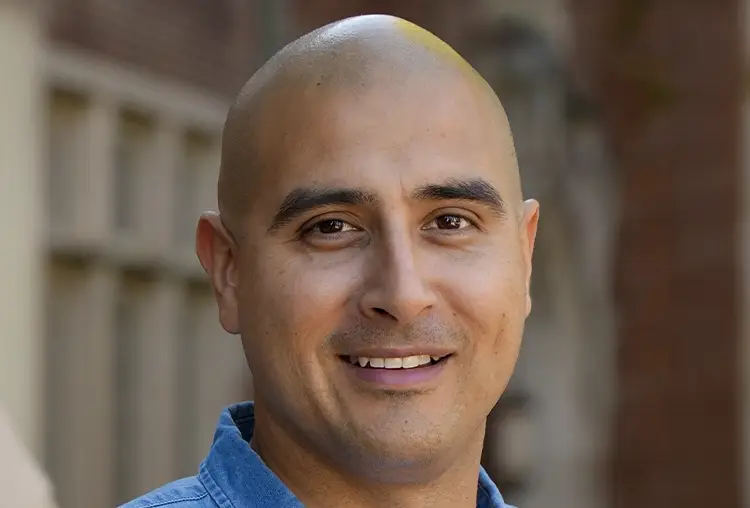


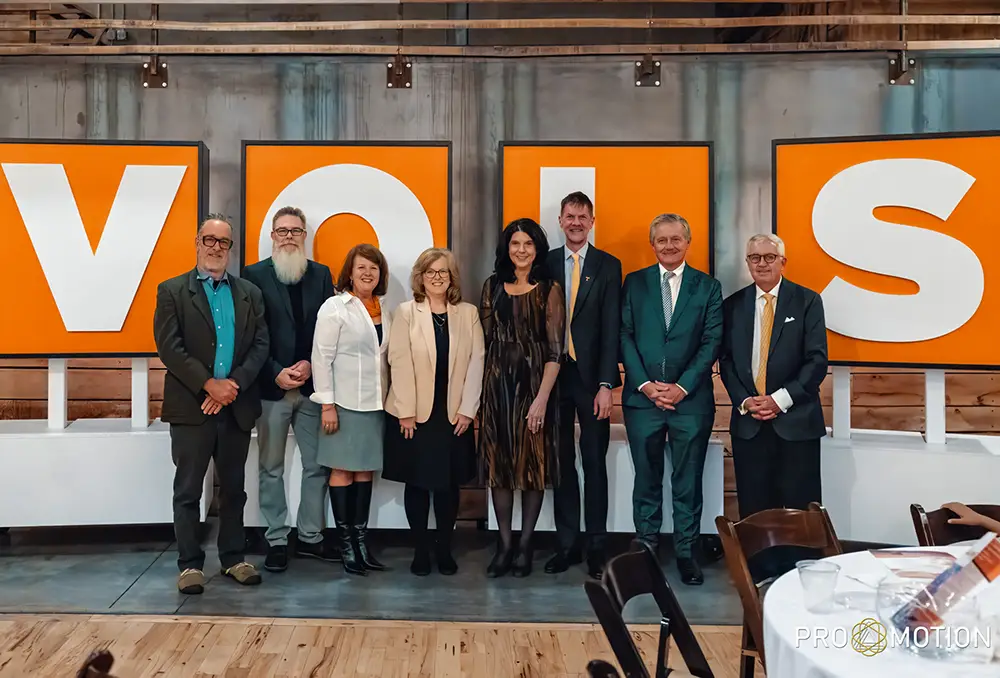

Harry Dahms in ‘The Conversation’: Studying science fiction films can help students understand the power societies have to shape our lives


Uncommon Courses is an occasional series from The Conversation U.S. highlighting unconventional approaches to teaching.
Title of course:
Sociology, Science Fiction Film, and Artificial Intelligence
What prompted the idea for the course?
A colleague in the sociology department used to teach a course using a film genre from the 1940s and 1950s that presented a bleak view of modern societies. I liked the idea of using film in my classes, but I was interested in another film genre. I chose science fiction films to encourage sociology students to adopt a constructive view of the future. I also wanted them to see the parallels between the underlying messages in these films and many concepts in sociology.
What does the course explore?
Since the 19th century, science fiction and sociology have examined how industry and economics affect what it means to be human.
Science fiction often looks at potentially dangerous contemporary trends and envisions a future in which society and human civilization are threatened. Sociologists also focus on unsettling trends: overpopulation, rising inequality, resource depletion, excessive reliance on technology or persistent racism. Science fiction imagines the impact of these trends on the social structures of the future. In contrast, sociologists focus on the roles that economics, the different ways of structuring a society and technology play in creating these trends.
Why is this course relevant now?
The goal of this course is to help students understand that societies are more than groups of people. Societies are alive and try to survive on their own terms and are sometimes at odds with the interests of the people who live in them.
In many science fiction films, such as “The Matrix,” “Dark City,” “Oblivion” and “They Live,” protagonists discover that the societies they live in depend on hidden systems of control. In “The Matrix” series, the protagonist, Neo, learns that what he believes is real is actually a simulation shared by all humans. The shared illusion keeps them captive and inert while their electrical impulses are used to power sentient machines. Often, the systems of control in these films contradict and even exploit the values and norms the protagonists embrace. The hero in “Oblivion,” for example, believes his work is saving humankind; in fact, he is being used by alien technology that is draining the planet of its resources.
Sociologists study how factors in modern society such as economic systems and technologies such as AI shape our lives. Like the protagonists in a sci-fi film, sociologists attempt to understand the underlying systems of control. In both fiction and fact, these systems exist independently of the people who are part of the system. Those in the system are typically unaware of its existence and are unable to create or control it.
What’s a critical lesson from the course?
While many people believe they act of their own accord, their actions and choices are shaped by factors they can’t direct. What individuals do is based, in part, on social and economic patterns, such as whether the society they live in is religious or secular. Actions and beliefs are also influenced by psychological and biological factors, such as the way individuals were raised in childhood and the effect of their sex or race. People are inclined to look for solutions to 21st-century problems in traditional ideas, practices and institutions – including systems of government – that may have originated decades or centuries ago. These methods are ill-suited to confronting newly emerging challenges. For example, countries may want to tackle climate change, a global phenomenon, but are usually limited by national policies, which are ineffective.
What materials does the course feature?
The primary text for understanding science fiction is “Metamorphoses of Science Fiction” by writer and philosopher Darko Suvin, a former professor of literature at McGill University. The course also features essays, articles and film clips that connect sociology, science fiction films and AI, including my own articles, Decoding Modern Society: The Matrix Trilogy and the Realm of Alienation and Science-Fiction Films and “Love”: Toward a Critique of Regressive Social Relations.
What will the course prepare students to do?
Students will learn to interpret science fiction films constructively, as allegories about their place in a rapidly changing world. They will recognize that understanding sociology – that is, the study of human behavior and the structure of society – can help us avoid the mistakes of the past and embrace the future without fear.
Harry F. Dahms, Professor of Sociology, University of Tennessee
This article is republished from The Conversation under a Creative Commons license. Read the original article.
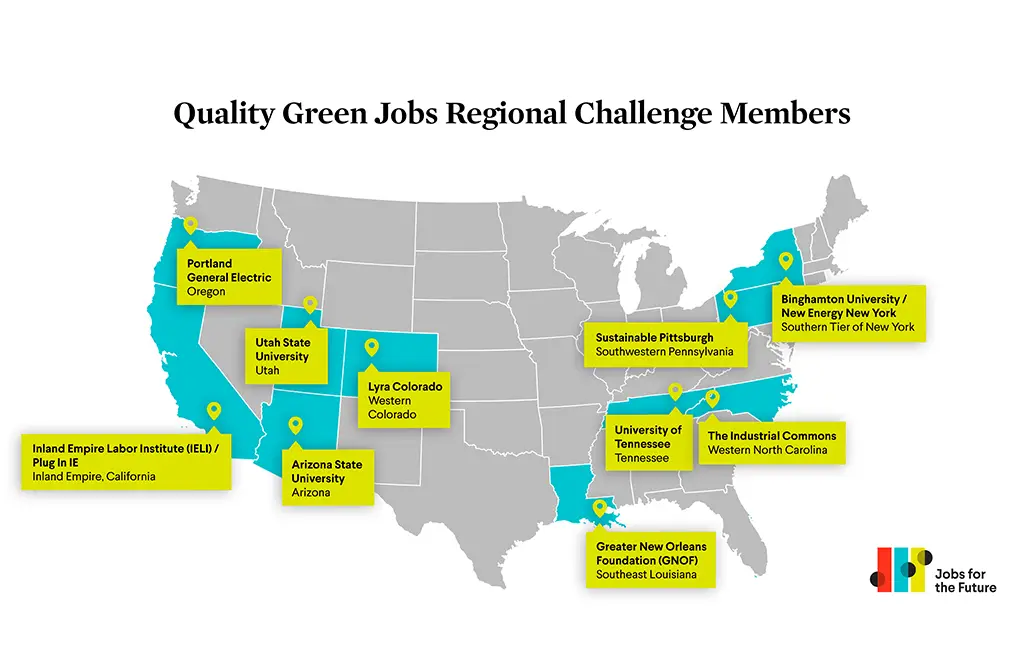
UT Team Moves Forward in Green Jobs Regional Challenge

An interdisciplinary team of UT Knoxville faculty members has moved forward in the Jobs for the Future (JFF) Quality Green Jobs Regional Challenge.
The challenge seeks to invest nearly $5 million directly in communities to develop and implement regional quality green job strategies as part of an initiative by Climate-Resilient Employees for a Sustainable Tomorrow (CREST), a career preparation and reskilling initiative of the Ares Charitable Foundation.
The team includes Professor Stephanie Bohon, head of the UT Department of Sociology, Professor Jon Shefner, also in sociology, and Associate Professor Mitsunori Misawa, UT College of Education, Health, and Human Sciences.
They are one of 10 teams that moved forward from the first phase of the challenge, in which their plan qualified for $10,000 participation grants. Their selection for phase two allows them to apply for $75,000 planning grants, with the potential to progress toward more funding.
“Being in phase two means we are able to apply for one of five $750,000 phase three grants,” said Bohon.
Workforce experts project demand for 14,000 new workers in East Tennessee in advanced manufacturing and green construction, while sustainable tourism is expected to grow by 23.4% by 2032.
“East Tennessee faces a labor paradox,” said Bohon. “There are more jobs than people looking for work. At the same time, many people in East Tennessee are not working but could be. A lot of this paradox is attributable to skills mismatch. There is a high demand for workers in the skilled trades—machinists, tool and die specialists, carpenters, and so forth—but few people get that kind of training.”
By advancing in this challenge, the UT team can explore ways to reach Tennesseans who are left out of the job pipeline so that they can get the training they need to get good jobs. They will also work with service providers to make transportation, childcare, and other obstacles less of a barrier to working.
“At the same time, we are interested in reducing environmental damage by focusing on so-called “green” jobs—those that use cleaner practices and produce less environmentally harmful products and services,” said Bohon. “We have a knowledgeable team of UT and local partners, and we are excited to begin the work.”
These jobs diminish the use of fossil fuels, remediate climate damage, and increase the efficiency of energy use through manufacturing, design, and implementation of innovative products and processes and through revising traditional skills and processes to nurture the green transition.
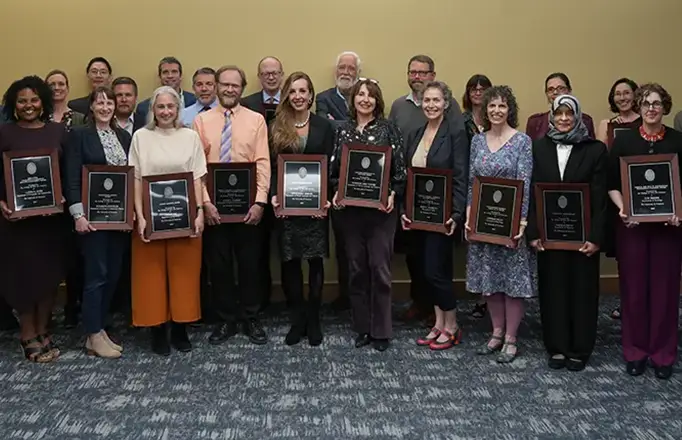
Brown, Presser Honored at Annual College Faculty Convocation
Professors Michelle Brown and Lois Presser received awards for excellence in research and outstanding teaching during the 2023 College of Arts and Sciences Faculty Convocation.
Michelle Brown, Professor
Excellence in Research & Creative Achievement Awards: Senior
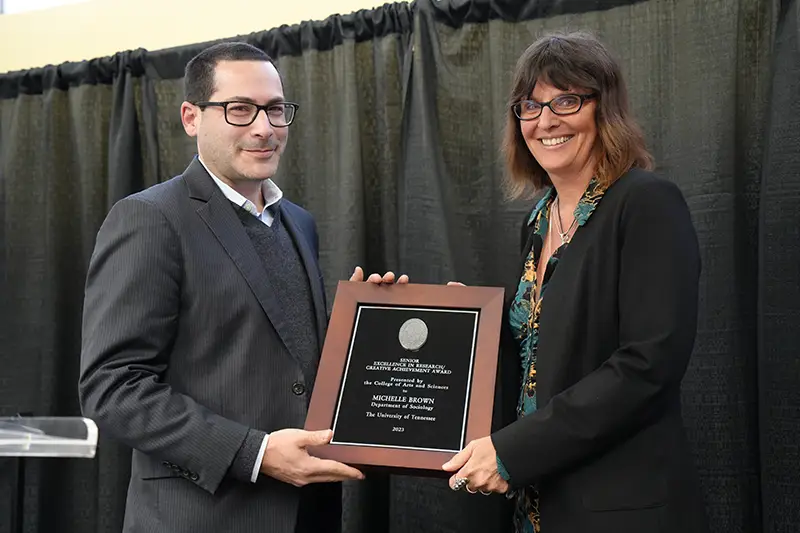
Brown is an acclaimed visual criminologist who joined the University of Tennessee in 2011, received early tenure, and was promoted to professor in 2018. She is an excellent researcher who has published two books on criminology and culture and has another book under contract, all with NYU Press, along with 50 other peer-reviewed pieces.
Brown edited the Palgrave MacMillan Crime, Media, and Culture book series and was editor of the Sage journal Crime, Media, Culture. Very notably, she served as the senior editor of The Oxford Encyclopedia of Crime, Media, and Popular Culture, which received Library Journal’s Best Reference Work Award in 2018.
In addition to a Chancellor’s Award for Teaching and the College’s Diversity Leadership Award, she has also received the University’s Jefferson Prize along with the College’s Award for New Research in the Arts and Humanities. The American Society of Criminology named Michelle Brown the Critical Criminologist of the Year in 2016.
Lois Presser, Professor
James R. and Nell W. Cunningham Outstanding Teaching Award
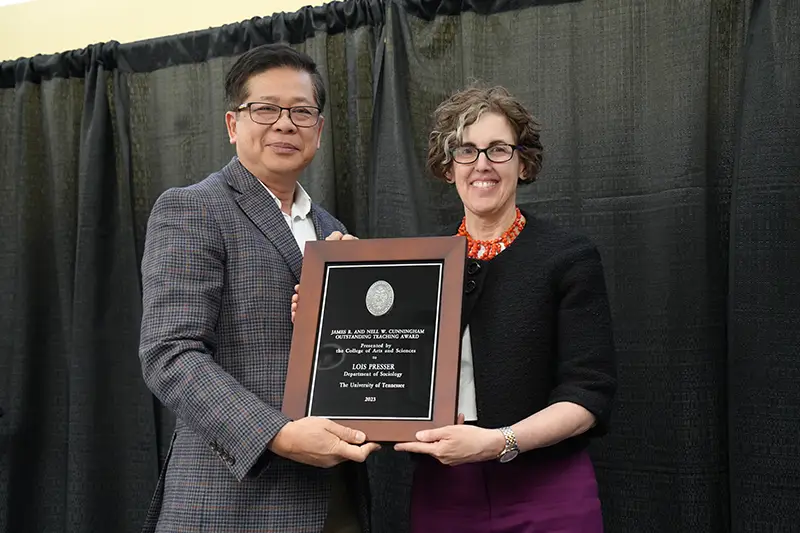
Presser’s nomination came at the urging of our graduate students, who refer to Presser as “one of the most inspiring and dedicated professors” with whom they have worked. They especially note her efforts to hone their research skills, commenting that “she does this by offering extremely detailed feedback on every assignment, creating a space where we feel safe to facilitate discussion, ask questions, and seek additional help whenever and for whatever reason.”
Across her career, Presser has received 21 fellowships and grants, including a Fulbright. She published four monographs, edited five books, and published 61 other papers. Among those papers are several co-written with graduate students who have gone on to remarkable careers of their own. Presser has supervised 17 thesis and dissertation projects and eight senior honors projects. She has taught classes on narrative criminology (an area of criminology that she founded) in Finland, Italy, and Norway. Presser received the Chancellor’s Award for Excellence in Teaching in 2014 and the Excellence in Research (mid-career) award from the College of Arts and Sciences in 2015. Last spring, she was named Outstanding Graduate Director of the Year by the Graduate Student Senate.
Presser Named Distinguished Humanities Professor
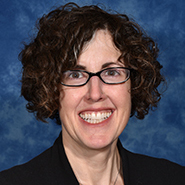
We are proud to highlight a UT sociology first: Lois Presser was named Distinguished Professor in the Humanities. The professorship recognizes “extraordinary and ongoing achievements by senior scholars in the humanities.” Presser, who serves as the department’s director of graduate studies and teaches in the area of criminology, has been at UT for her entire academic career and was promoted to professor in 2014.
Presser is a pioneer in the field of narrative criminology, which unites a growing interdisciplinary and global community of scholars. Narrative criminology considers stories as shaping—legitimizing, motivating, and potentially defying—harmful actions and patterns. Narrative criminologists note the behavioral and ethical consequences of individuals’ and societies’ engagement with narratives. They mount humanist inquiries into those narratives and their constituent elements. Harm is a topic that winds through nearly all of Presser’s work, with her most recent book, Unsaid, focusing on how silence contributes to harm.
Presser has published six books along with dozens of journal articles and book chapters. Her work has been cited more than 2,300 times. She has earned much critical acclaim, for example, for her 2018 book Inside Story, which interrogates the emotional sway of stories that motivate masses of people to endanger and kill others—and look the other way in the face of such harm.
In a review for Diegesis, Luc Herman of Antwerp University points out that Inside Story “offers resounding testimony to the value of interdisciplinarity in the study of narrative.” Philip Smith of Yale University writes, “Presser displays her trademark capacity for expressing intellectually complex ideas in plain English. Inside Story will become a first port of call for both students and established scholars exploring just how culture is tied to violence.”
Presser’s work is the focus of conferences, panels, and workshops throughout the world. She has held appointments as visiting professor of criminology and sociology of law at the University of Oslo, visiting professor at the Danish Centre of Applied Social Science, and visiting research fellow at the University College London. She also received a Fulbright fellowship co-sponsored by Tampere University in Finland.
Shefner Named College’s First-Ever Herbert Family Professor of Excellence
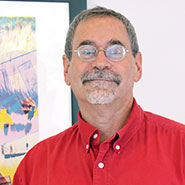
Professor Jon Shefner was named the Herbert Family Professor of Excellence in August 2023. He is the first scholar in the College of Arts and Sciences to hold this endowed professorship, which recognizes a distinguished career of teaching, research, and service.
He served as head of the department for ten years and has held the title of Betty Lynn Hendrickson Professor of Social Science. He was the founding director of the Global Studies Interdisciplinary Program. He is also a Fulbright Scholar whose long and remarkable research record in social justice, social movements, globalization, political economy, and green economic development has made him an internationally recognized and trusted scholar in these areas of sociological inquiry. Much of his research in Latin America and in Southern Appalachia is motivated by his life-long commitment to fairness, diversity, and democratic principles needed to create public policies and educational programs that are effective and just.
Shefner is an award-winning teacher, editor, and author who has written nine books and scores of journal articles and book chapters. His published work is often collaborative, helping graduate students with their professional socialization, and always seeks to highlight the political message in his scholarship. He is also a public-facing scholar, publishing editorials and serving as subject expert for many news stories.
Shefner’s activist and organizing history began while he was a master’s student at Colorado State University in the mid-1980s, where he contributed to organizing against US interventionism in Latin America and led a successful anti-apartheid divestiture campaign. After earning his degree in 1986, Shefner continued his work supporting Central America into the 1990s, followed by a shift in academic and organizing attention to Mexico. He spent nearly two years on the outskirts of Guadalajara studying a community organization struggling for utilities, pavement, and democracy, which led to his book published in 2009, The Illusion of Civil Society. Shefner followed this work with a Fulbright scholarship to Ecuador, where he worked along with one of the main Indigenous opposition social movements, CONAIE.
He recently created the master’s program in applied sociology, which focuses on educating students for action in movements, unions, think tanks, and other applied efforts toward social justice. This program just graduated its first two students and is recruiting more. Shefner is currently the lead on a grant from the Ares Foundation aiming to foster equitable economic development and he serves as senior personnel on several NSF grants. In his grant-funded work, his focus is on inclusion of community organizations and organized labor.
Shefner currently serves as the founding director of the Community-University Research Collaborative Initiative (CURCI), a university and community-wide program that fosters community-engaged research. Now in its second year, the program provides support for faculty across the university to collaborate with community organizations to bring university expertise to meet local needs.
The project was designed by Shefner to bring innovation and collaboration to the larger society to lead to a more just and sustainable future. With the support of Lecturer Lisa East, CURCI is currently working on 12 different projects. He continues to write articles and chapters in the areas of equitable economic development, organizing, and political economy.
Jalata Named Betty Lynn Hendrickson Professor
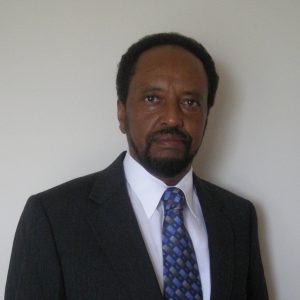
Professor Asafa Jalata was named the Betty Lynn Hendrickson Professor by the College of Arts and Sciences in August 2023. This endowed professorship is given biannually to a faculty member in the college with an exceptional record of research and teaching in the social sciences. The professorship recognizes Jalata’s 32 years on the faculty of the Department of Sociology, along with his affiliations with Global Studies and Africana Studies.
Jalata is originally from Oromia, a region of Africa under the control of Ethiopia. The oppression of the Oromo people and the banning of the Oromo language, followed by years of heavy repression from state forces, left a lasting impression on Jalata, who has dedicated his career to exploring the possibilities for genuine democracy in the nations of the global South.
Jalata works and teaches in the areas of critical race and ethnic studies and political economy and globalization. His research record is substantial, including publishing 15 books—nearly one every two years across his scholarly career. He has also published more than 70 peer-reviewed journal articles, book chapters, and works of public sociology explaining social movements, violence, and war in Africa. Works like those produced by Jalata are significant to the American public, which hears too little about Africa and knows little about US-African relations and policies. His ability to dig deeply into Africa’s political, social, and cultural conditions lends to our understanding of the lasting impact of colonialism, imperialism, oppression, and democracy’s frailty.
Jalata is active in the Oromo Studies Association, has served as its president, and edited the Journal of Oromo Studies. This substantial body of work was acknowledged in 2020, when he received the Oromo Studies Association Lifetime Achievement Award. He is a fellow with the Center for the Study of Social Justice. He serves as the editor-in-chief of Sociology Mind and on the editorial board of the Journal of Pan African Studies and the Journal of World-Systems Research. He is also active in the African Studies Association and the Association of Concerned African Scholars.
New Faculty Join UT Sociology in 2023

Name: Natasha Patrice Ellis, PhD
Title: Lecturer
Education: Doctorate, University of Tennessee (sociology with a concentration in critical race and ethnic studies and environmental sociology); master’s degree, Clark Atlanta University (sociology); bachelor’s degree (sociology and anthropology), Agnes Scott College
Specialty Area: Ellis has studied and facilitated research in India and West Africa exploring social stratification, the transnational circuits of colorism, skin bleaching, and how digitization of imagery poses a sociological, psychological, and emotional detriment to one’s understanding of self and racial identity.

Name: Joong Won Kim, PhD (he/him/his)
Title: Lecturer
Education: Doctorate, Virginia Tech; master’s degree, DePaul University; bachelor’s degree, Southern Illinois University, Carbondale
Specialty Area: Kim’s work can be found in academic peer-reviewed journals such as Ethnic and Racial Studies, American Behavioral Scientist, Sociation, Sociological Inquiry, and Sustainability. Kim also serves as a research assistant professor and the communications director at the Laboratory for the Study of Youth Inequality and Justice.
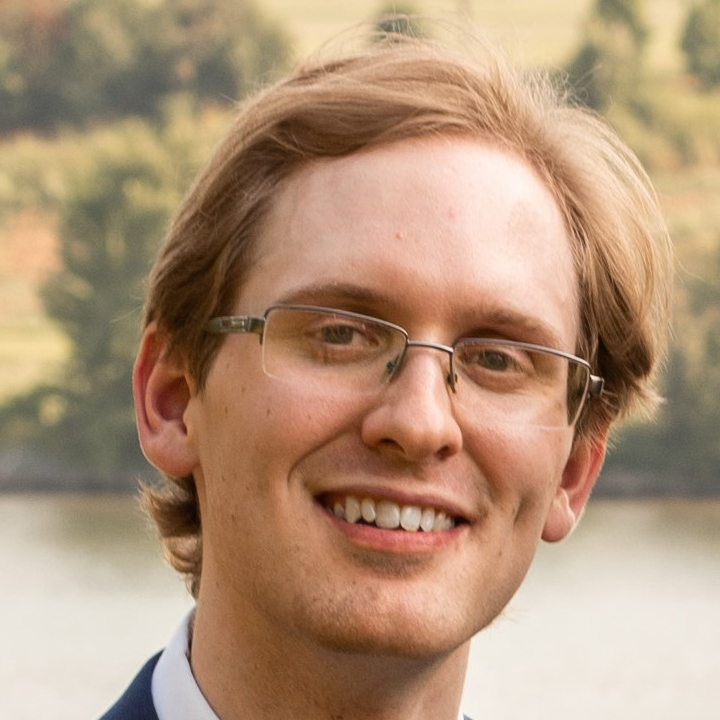
Name: Anthony J. (AJ) Knowles, PhD
Title: Lecturer
Education: Doctorate, University of Tennessee; master’s degree, University of Tennessee; bachelor’s degree, University of Tennessee
Specialty Area: Knowles’s primary research focus pertains to the social and economic effects of technologies and automation, and how the continuous pursuit of higher productivity and efficiency continuously changes the nature of labor in society.

Name: Prashanth Kuganathan, PhD
Title: Postdoctoral Teaching and Research Fellow in Global Studies
Education: Doctorate (Applied Anthropology), Columbia University
Specialty Area: Kuganathan’s current book project combines the ethnography of education with applied linguistics, examining the role of the English language in postcolonial and postwar northern Sri Lanka. The project also studies people’s lives in the Jaffna peninsula who experienced the violent and displacing devastation of the Sri Lankan Civil War (1983-2009).

Name: Bill McClanahan, PhD
Title: Assistant Professor
Education: Doctorate, University of Essex in Colchester, England
Specialty Area: McClanahan’s research seeks to generate questions surrounding visual and sensory cultures, police, and rurality by interrogating the intersections of violence, ecology, and power. He is a reviews editor at the journal Crime, Media, Culture and serves on the editorial board of Critical Criminology.

Name: Steve McGlamery, PhD
Title: Lecturer
Education: Doctorate, Virginia Tech
Specialty Areas: McGlamery’s work is in race, inequality, religion, whiteness, civil rights movement, religion and race, and race and sports.

Name: Christine Vossler, PhD
Title: Lecturer
Education: Doctorate, University of Tennessee
Specialty Areas: Vossler’s primary research interest pertains to sexual harassment, under the lens of narrative criminology and narrative victimology. Specifically, she studies how offenders communicate their experiences of harmdoing, how victims use narratives to explain and make sense of their experience in the aftermath of victimization, and the impact of sexual harassment on bystanders.